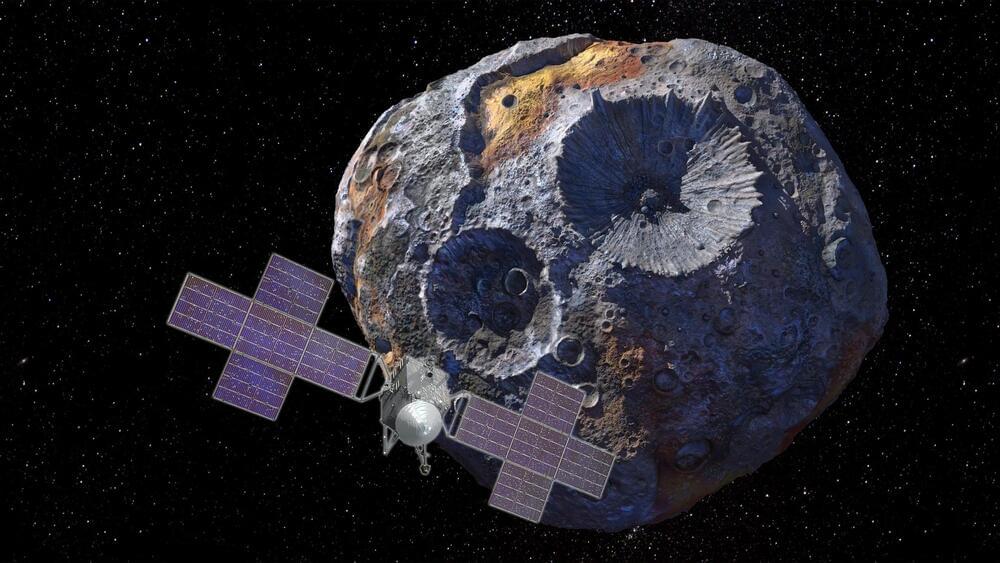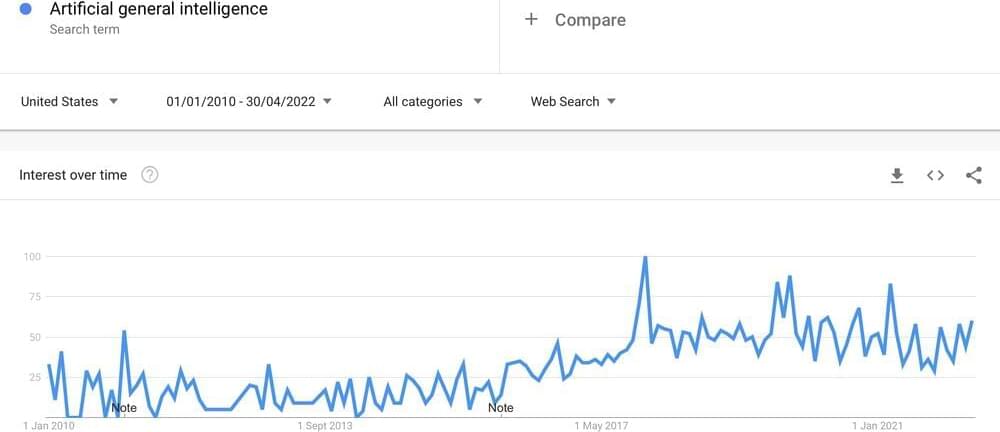May 24, 2022
Turns out, Meta isn’t building its own metaverse at all
Posted by Gemechu Taye in category: habitats
Last year, Meta jumped the gun on metaverse. Six months later, it wants everybody to play along in an open and transparent manner.
Last year, Meta jumped the gun on metaverse. Six months later, it wants everybody to play along in an open and transparent manner.

For the past fifty years of space exploration, mass spectrometry has provided unique chemical and physical insights on the characteristics of other planetary bodies in the Solar System. A variety of mass spectrometer types, including magnetic sector, quadrupole, time-of-flight, and ion trap, have and will continue to deepen our understanding of the formation and evolution of exploration targets like the surfaces and atmospheres of planets and their moons. An important impetus for the continuing exploration of Mars, Europa, Enceladus, Titan, and Venus involves assessing the habitability of solar system bodies and, ultimately, the search for life—a monumental effort that can be advanced by mass spectrometry. Modern flight-capable mass spectrometers, in combination with various sample processing, separation, and ionization techniques enable sensitive detection of chemical biosignatures.
Circa 2021
For the past fifty years of space exploration, mass spectrometry has provided unique chemical and physical insights on the characteristics of other planetary bodies in the Solar System. A variety of mass spectrometer types, including magnetic sector, quadrupole, time-of-flight, and ion trap, have and will continue to deepen our understanding of the formation and evolution of exploration targets like the surfaces and atmospheres of planets and their moons. An important impetus for the continuing exploration of Mars, Europa, Enceladus, Titan, and Venus involves assessing the habitability of solar system bodies and, ultimately, the search for life—a monumental effort that can be advanced by mass spectrometry. Modern flight-capable mass spectrometers, in combination with various sample processing, separation, and ionization techniques enable sensitive detection of chemical biosignatures. While our canonical knowledge of biosignatures is rooted in Terran-based examples, agnostic approaches in astrobiology can cast a wider net, to search for signs of life that may not be based on Terran-like biochemistry. Here, we delve into the search for extraterrestrial chemical and morphological biosignatures and examine several possible approaches to agnostic life detection using mass spectrometry. We discuss how future missions can help ensure that our search strategies are inclusive of unfamiliar life forms.
Biosignatures are the tantalizing chemical and physical imprints associated with life, and the possibility that life exists elsewhere beyond Earth drives us to search for these biosignatures on other planets and moons. The enterprise of space exploration, galvanized by the question of “Are we alone in the Universe?”, demands a stronger understanding of the diversity of biosignatures that life could express, thereby driving payload instruments on board astrobiology missions to offer broader and more advanced detection capabilities. In tandem with cutting-edge instrument platforms, research in data processing and data analysis on Earth-based (Terran) astrobiology analogs and on extraterrestrial materials also serves to increase the breadth of interpretations possible with mission data.

Cultivated meat company to bring tiger and zebra meat to your dinner plates this year!
Hey it’s Han from WrySci-HX going through the recent announcement that Primeval Foods will hold tasting events for lion, tiger and zebra meat in 2022. No animals harmed in the process! More below ↓↓↓
Artificial intelligence (AI) is spreading through society into some of the most important sectors of people’s lives – from health care and legal services to agriculture and transportation.1 As Americans watch this proliferation, they are worried in some ways and excited in others.
In broad strokes, a larger share of Americans say they are “more concerned than excited” by the increased use of AI in daily life than say the opposite. Nearly half of U.S. adults (45%) say they are equally concerned and excited. Asked to explain in their own words what concerns them most about AI, some of those who are more concerned than excited cite their worries about potential loss of jobs, privacy considerations and the prospect that AI’s ascent might surpass human skills – and others say it will lead to a loss of human connection, be misused or be relied on too much.
But others are “more excited than concerned,” and they mention such things as the societal improvements they hope will emerge, the time savings and efficiencies AI can bring to daily life and the ways in which AI systems might be helpful and safer at work. And people have mixed views on whether three specific AI applications are good or bad for society at large.
A new experiment on the emission spectrum of quantum dots in photonic-crystal microcavities supports a recently proposed theory of cavity quantum electrodynamics.
A water wave incident on a grooved wall is shown to be analogous to electromagnetic waves called surface plasmon polaritons.
The ability of metamaterials to steer light has enabled amazing inventions from superresolution microscopes to “invisiblity” cloaks. But the physics underlying these structures also applies to other waves, such as acoustic, seismic, and water waves. Huanyang Chen and his colleagues at Xiamen University in China have demonstrated a structure that can change the propagation of surface water waves, making a localized wave that is analogous to an electromagnetic excitation called a surface plasmon polariton [1].
Surface plasmon polaritons occur at the interface between a dielectric and a negative-permittivity material such as a metal. Generating an equivalent excitation in surface water waves requires a similar sort of interface, such as that between water and a vertical barrier. In this case, the water’s parameter that is analogous to a metal’s permittivity is its depth. Of course, it’s impossible for water to have negative depth, but using metamaterials, Chen and his colleagues engineered the boundary conditions of the waves to achieve the same effect.
View insights.
TOKYO, May 24 (Reuters) — President Joe Biden on Tuesday said there was no change to a U.S. policy of “strategic ambiguity” on Taiwan, a day after he angered China by saying he would be willing to use force to defend the democratic island.
The issue of Taiwan loomed over a meeting in Tokyo of leaders of the Quad grouping of the United States, Japan, Australia and India, who stressed their determination to ensure a free and open Indo-Pacific region in the face of an increasingly assertive China — though Japanese Prime Minister Fumio Kishida said the group was not aimed at any one country.
Continue reading “Biden says no change on ‘strategic ambiguity’ as Taiwan overshadows Quad talks” »

Experts believe AGI will occur around 2050, and plausibly sooner. You can see above their estimates regarding specific AI achievements: passing the Turing test, passing third grade, accomplishing Nobel worthy scientific breakthroughs and achieving superhuman intelligence.

A theoretical physicist has outlined how mankind could build a giant spinning space settlement in orbit around Ceres. It involves a space elevator.
